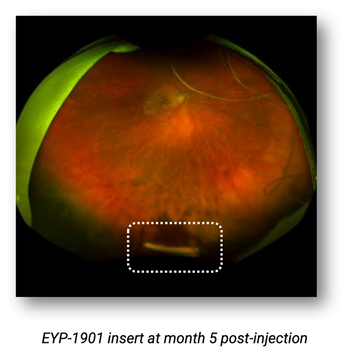
Previously treated patients showed significantly reduced treatment burden.

Previously treated patients showed significantly reduced treatment burden.

At Angiogenesis, Dr. SriniVas R. Sadda discusses how choriocapillaris may predict the rate of progression of atrophy.

In a presentation at the Bascom Palmer Eye Institute’s 19th annual Angiogenesis, Exudation, and Degeneration 2022 Virtual Edition, Glenn J. Jaffe, MD, noted that the analysis showed, for the first time, a decreased growth rate in the central foveal area by a therapeutic intervention when compared to sham treatment.

Dr. Nadia K. Waheed reviews the latest updates on the FOCUS trial, evaluating AAV-based viral vector GT005 for the treatment of geographic atrophy.
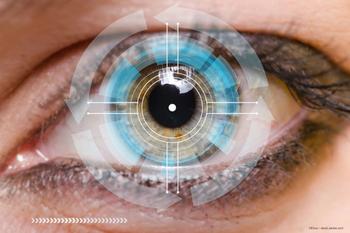
This study showed that an investigational subretinal implant, CPCB-RPE1, containing allogeneic human embryonic stem cell-derived RPE cells, was safe and well-tolerated by patients with dry AMD.

Dr. David S. Boyer describes how blocking Connexin-43 may improve the retinal vascular system function in patients with diabetes, potentially creating a future of oral medication for treatment of diabetic retinopathy and AMD.

NGM621 is a monoclonal antibody product candidate engineered to potently inhibit complement C3 for the treatment of patients with geographic atrophy secondary to age-related macular degeneration.

According to the companies, a social media initiative will include donation to Prevent Blindness’ Sight-Saving Fund.

A University of California Davis study shows that small serving of the fruit increased protective pigments in the eye.
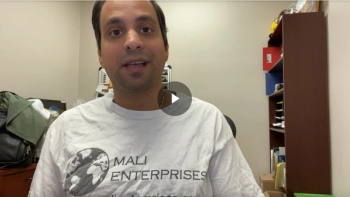
Joshua Mali, MD, talks about how the FDA approval of faricimab will change the treatment landscape for wet AMD and DME.

Genentech’s treatment of faricimab is the first and only FDA-approved medicine targeting two distinct pathways, angiopoietin (Ang)-2 and vascular endothelial growth factor (VEGF)-A, that often cause retinal diseases that may cause visual loss.

A team of investigators are working on a simple test that may someday identify those who can stop therapy.

Across four studies, about half of eligible faricimab patients were able to go 4 months between treatments, and approximately three-quarters could be treated every 3 months or longer. Two papers published in The Lancet highlight one-year results.
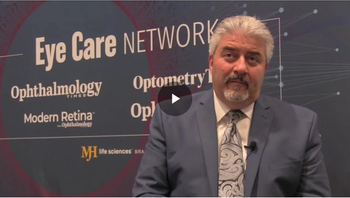
Firas Rahhal, MD, discusses Outlook Therapeutics’ Phase 3 pivotal NORSE TWO trial for ONS-5010.

ASCENT, REGENXBIO’s Phase III clinical trial conducted in partnership with AbbVie, is expected to enroll patients in the United States and Canada, with pivotal trials expected to support BLA submission for RGX-314 in 2024.
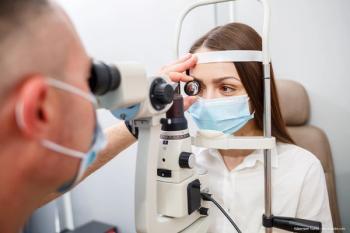
Real-world evidence is growing in importance as a source of information that can help support clinical decision-making when evaluated properly.

Current options, challenges in developing novel therapies.

First annual Geographic Atrophy Awareness Week, hosted by Prevent Blindness, will be December 6-12, 2021.
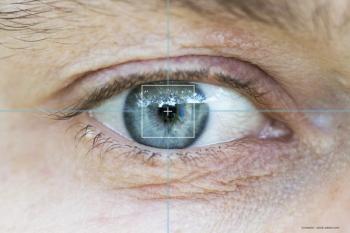
Patients can get real-time disease monitoring with self-operated device.
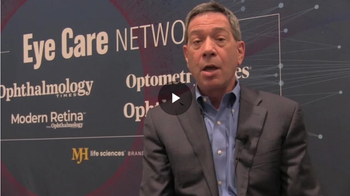
Jay Duker, MD, discusses EYP-1901, EyePoint Pharmaceuticals’ sustained-release anti-VEGF drug for the treatment of wet AMD.
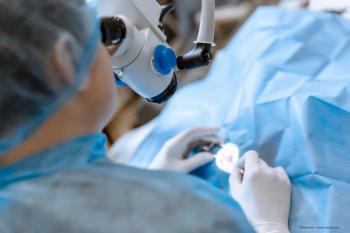
Options facilitate increased durability for patients with retinal degeneration.
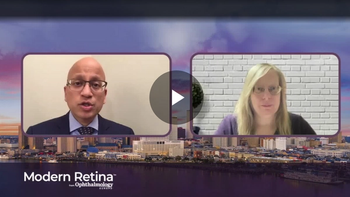
Sunir J. Garg, MD, speaks on the influence of COVID-19 universal face masking on the risk of endophthalmitis following intravitreal anti-VEGF injections.
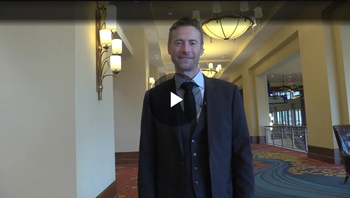
Nathan Steinle, MD, discusses top-line results of the OAKS and DERBY trials, testing the efficacy of pegcetacoplan for the treatment of geographic atrophy.
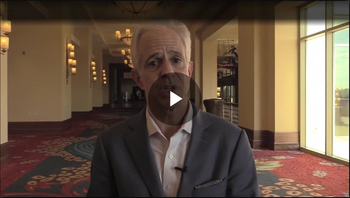
Carl Regillo, MD, takes us through the history of the port delivery system, from ideation to FDA approval.

Susvimo, previously called the Port Delivery System with ranibizumab, is a first-of-its-kind therapeutic approach for wet AMD and may help people with the disease maintain their vision with as few as two treatments per year.